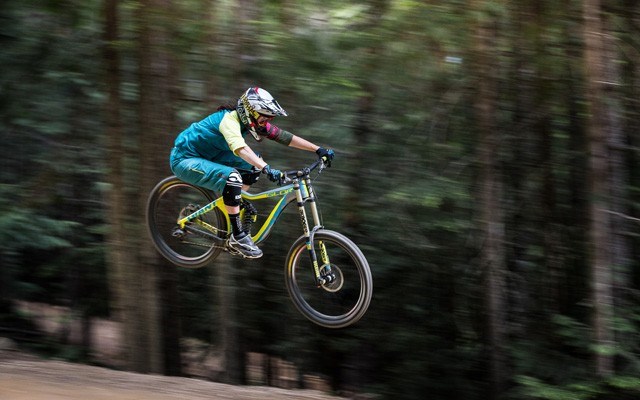With a community full of adrenaline junkies, it's no surprise the risk of brain injury is higher in Whistler than in most places.
And yet, despite being armed with plenty of new research on the potentially lasting impacts of head injuries, many Whistlerites fail to take the necessary steps to treat their concussions in the long term.
"This town is made of people who just want to go; they want to ski hard, they want to bike hard, they push themselves to the limit and don't want to be told to back off," said occupational therapist Patricia Stoop, who spoke with Pique to mark Brain Injury Awareness Month. "But if you don't manage a concussion properly in the first little while, it makes it really tough down the road."
Stoop has launched a support group through Sea to Sky Community Services and Vancouver Coastal Health for adults who've sustained a brain injury with symptoms that have lasted for more than six months.
The group regularly draws over a dozen attendees to its weekly sessions, with some members having experienced symptoms up to eight years after their injury.
"We found that the support aspect of the group was really helpful to those people," said Stoop.
The key, Stoop said, is to ensure those who've experienced brain trauma get the help they need early on, before their symptoms worsen and develop into something more long lasting.
"We feel, from those of us in the group, that there really needs to be a focus on early intervention so people get the right information at the right time and get the right help, so it will prevent them from being those people with symptoms one, two or three years (after an injury)," she said.
The Whistler Youth Soccer league launched concussion testing in September, and other local sports organizations are considering similar measures, Stoop noted. Physiotherapy clinic Back in Action also offers baseline brain injury testing and treatment to the general public.
Mike Conway, physiotherapist and co-owner of Back in Action, is hopeful medical practitioners in Whistler from different fields can work together in the future to offer a more coordinated and holistic approach to brain injury treatment.
"It really is a major team approach," he said. "Some people go through the psychology route, some people go the counselor route, some people go the physio route, but it really needs a whole team."
How to recognize a brain injury
There are several easy-to-spot signs of a brain injury, explained Charlie Greenaway, instructor with St. John Ambulance.
Any kind of fluid coming out of the ears is a major concern, he said, and the injured party should be taken for medical care as soon as possible.
Another common early sign is constant, repetitive questioning from the injured person, who may also be quick to agitate in the aftermath of a concussion.
"That's where people really have to watch out because once someone starts to get agitated, we tend to walk away," said Greenaway.
Other symptoms include nausea, vomiting, bruising in and around the eyes and ears, and debilitating headaches.
Greenaway also said to look out for a sudden change in breathing pattern, with head injury sufferers typically showing slow, shallow breathing.
For more information on brain injuries and how to treat them, head to www.sja.org.uk/sja/first-aid-advice/head/head-injuries.aspx.




